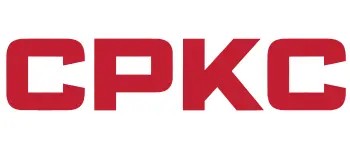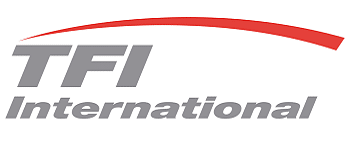These Canadian Industrial Stocks Help Stoke the Nation’s Growth
Key takeaways
Industrial stocks provide stability and long-term growth: Companies like CN Rail and CP Rail benefit from essential transportation infrastructure, while waste management and logistics firms offer steady, recession-resistant revenue streams.
Acquisitions and expansion drive competitive advantage: Companies such as TFI International and GFL Environmental are growing through strategic acquisitions, allowing them to scale operations and enter new markets.
Megatrends like e-commerce, sustainability, and aging demographics create opportunities: From rising demand for logistics and last-mile delivery to increasing investment in waste management and accessibility solutions, these trends are shaping the future of the industrial sector.
3 stocks I like better than the ones on this list.The industrials sector in the TSX has recently seen a boom, thanks to a number of leading companies driving growth and profitability. The increase in popularity when it comes to Canadian industrial stocks and to a certain extent the valuations of the railways have caught investors eyes.
Many industrial stocks also tend to be top-tier Canadian dividend stocks. Because most of them are growing relatively quickly, not too many have a high dividend yield. However, plenty are growing the dividend at a double-digit clip, more than making up for the lack of yield.
In Canada, we have some of the world’s largest railways, garbage collection companies, steel manufacturers, and more. Although we may not have the largest economy, many of the most prominent industrial companies here in Canada have exposure not only here but in the United States as well.
Some in the Canadian industrial sector even have exposure in Europe and other international countries.
The United States is home to some of the finest industrial companies in the world, with names like General Electric (GE), Boeing (BA), Union Pacific (UNP), and Caterpillar (CAT) all trading in the United States. These are great companies; however, here in Canada, we also have some great industrial names, and they often have larger economic moats than their US counterparts due to reduced competition.
In this article, I’ll spend some time discussing industrial stocks, plus review some options you could consider adding to your watchlist today.
Let’s go over some of the best.
What are the top industrial stocks in Canada?
Canada’s largest railway operator
Canadian National Railway (TSE:CNR)

Canadian National Railway (CN Rail) is the largest railway network in Canada, with a vast transportation system connecting the country to the U.S. It moves goods ranging from agriculture and energy products to consumer goods and industrial materials, making it a critical part of North America’s supply chain.
P/E: 8.0
5 Yr Revenue Growth: 9.3%
5 Yr Earnings Growth: 27.9%
5 Yr Dividend Growth: -%
Yield: 0.8%
North American railway with cross-border connectivity
Canadian Pacific Kansas City (TSE:CP)

Canadian Pacific Kansas City (CPKC) is a major railway company connecting Canada, the U.S., and Mexico. The recent merger with Kansas City Southern created the only single-line railway spanning all three countries, positioning CP for long-term trade and logistics growth.
P/E: 24.0
5 Yr Revenue Growth: 12.6%
5 Yr Earnings Growth: 1.9%
5 Yr Dividend Growth: 3.2%
Yield: 0.8%
North America’s fastest-growing waste management company
GFL Environmental (TSE:GFL)

GFL Environmental provides waste management, recycling, and environmental services across Canada and the U.S. The company focuses on sustainable waste disposal solutions, including landfill gas-to-energy projects and organic waste processing. GFL has rapidly grown through acquisitions and continues to expand its market reach.
P/E: –
5 Yr Revenue Growth: 17.9%
5 Yr Earnings Growth: -%
5 Yr Dividend Growth: -%
Yield: 0.1%
Related
The Best Canadian Oil Stocks

Leading North American trucking and logistics company
TFI International (TSE:TFII)

TFI International is one of North America’s largest trucking and logistics companies, offering freight transportation, parcel delivery, and warehouse solutions. With operations in Canada, the U.S., and Mexico, TFI has built a strong network through organic growth and acquisitions.le.
P/E: 16.2
5 Yr Revenue Growth: 17.3%
5 Yr Earnings Growth: 13.3%
5 Yr Dividend Growth: 18.0%
Yield: 2.1%
Global leader in mobility and accessibility solutions
Savaria (TSE:SIS)

Savaria designs and manufactures accessibility products, including stairlifts, wheelchair lifts, and home elevators. The company serves the growing market for mobility solutions, driven by an aging population and increased demand for accessible infrastructure.
P/E: 23.9
5 Yr Revenue Growth: 18.3%
5 Yr Earnings Growth: 5.1%
5 Yr Dividend Growth: 4.0%
Yield: 3.3%
The industrial sector contains a wide variety of companies
Industrial stocks refer to companies involved in manufacturing, construction, engineering, communications, utilities, aerospace, defence, industrial products, and other related industries.
These companies produce goods and services that other businesses or consumers use.
There are different types of industrial stocks, including:
- Cyclical industrial stocks: These stocks are highly influenced by economic growth and tend to perform well during periods of expansion. Examples include companies that produce durable goods like automobiles and appliances. It can also be construction-based companies, like WSP Global (TSE:WSP) or Stantec (TSE:STN)
- Defensive industrial stocks: These stocks are less sensitive to economic cycles and tend to perform well during periods of economic uncertainty. Examples include companies that produce essential goods and services like utilities, healthcare, or military defence companies like US company Lockheed Martin (LMT).
Related
Top Canadian Agriculture Stocks

The important of industrial stocks in relation to the Canadian economy
The industrial sector plays a crucial role in the Canadian economy by providing jobs and contributing to economic growth. According to Statistics Canada, the manufacturing sector employs over 3.9 million Canadians.
Investing in industrial stocks can expose investors to this important sector of the economy, one that is undoubtedly going to grow as we continue to expand our population and increase the amount of technology we utilize.
Railways have been around for long periods of time and will likely be something we utilize to ship goods even 100 years from now. Garbage collection companies will always be in need, and many construction and infrastructure companies will continue to benefit from rapid government spending.
Overall, it’s a good sector to place your money, and can certainly make up one portion of a widely diversified portfolio.

